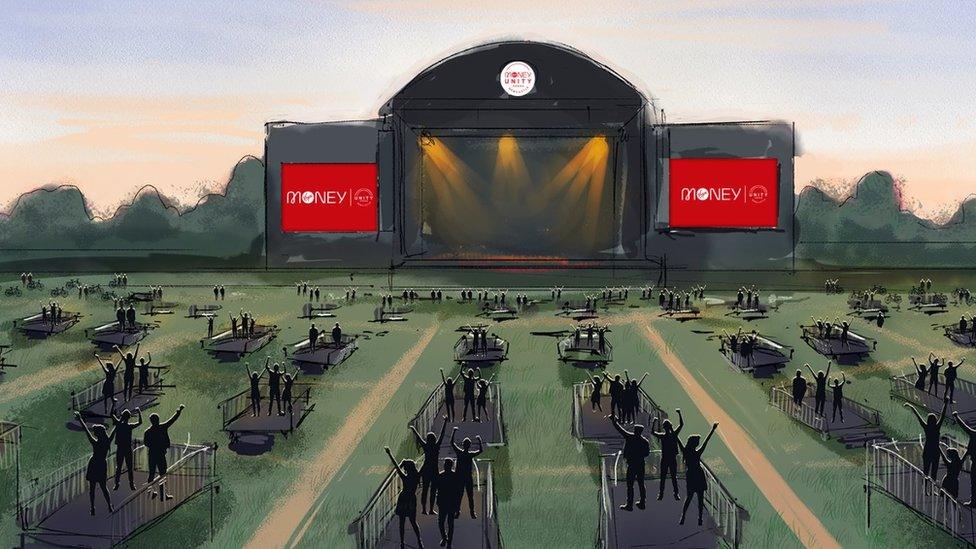Live gigs are back - but social distancing poses problems
- Published
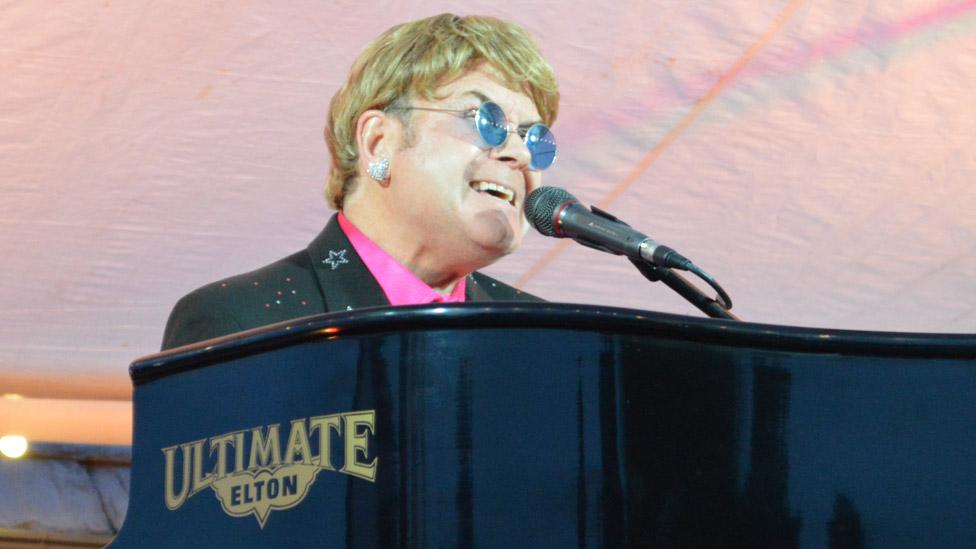
Ultimate Elton was one of the first acts to perform in front of an audience since lockdown
"It's wonderful to be here this evening," says Elton John - or rather Ultimate Elton, a tribute act with an uncanny voice and an even more uncanny wig. "It's wonderful to be anywhere, really."
After four months with no concerts - at least none with a live audience - Ultimate Elton (AKA Paul Bacon) headlined one of the first gigs to return, a hastily-arranged, scaled-back, socially-distanced (mostly) Hale Barns Carnival.
Ultimate Elton shared Saturday's bill with George Michael (actually Andrew Browning). A pub beer garden on the outskirts of Manchester may not be Wembley Stadium, and Paul and Andrew may not actually be Elton and George, but they are the best we've got for now.
As most of the 200 people in the Bulls Head garden got on their feet as Ultimate Elton launched into I'm Still Standing ("A good end of lockdown song"), it showed what we have all been missing - people together, in the same place, at the same time, having a blast.
The question is, can they do it safely?
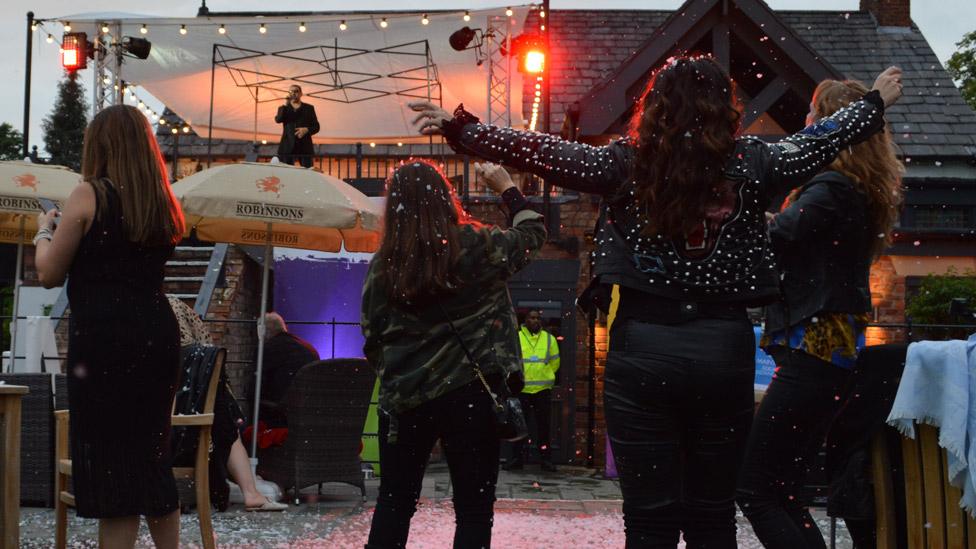
Fans watching George Michael tribute act Andrew Browning
Most families or groups had their own tables, which were a good four metres apart, and others sat on camping chairs in squares marked on the grass. There was plenty of space, plus signs telling us to "Keep calm and maintain social distancing", as well as reminders from the host.
To avoid queues, there was an app to order food and drinks from the pub to be delivered to your square. Anyone craving the sweaty rush of a moshpit will have to wait a while, but those who prefer not to be jostled might quite like this new normal.
Most people kept their distance. But as the night went on and the excitement (and alcohol) levels rose - who wouldn't be excited to see George Michael perform Wake Me Up Before You Go Go? - the social distancing boundaries did become blurred.
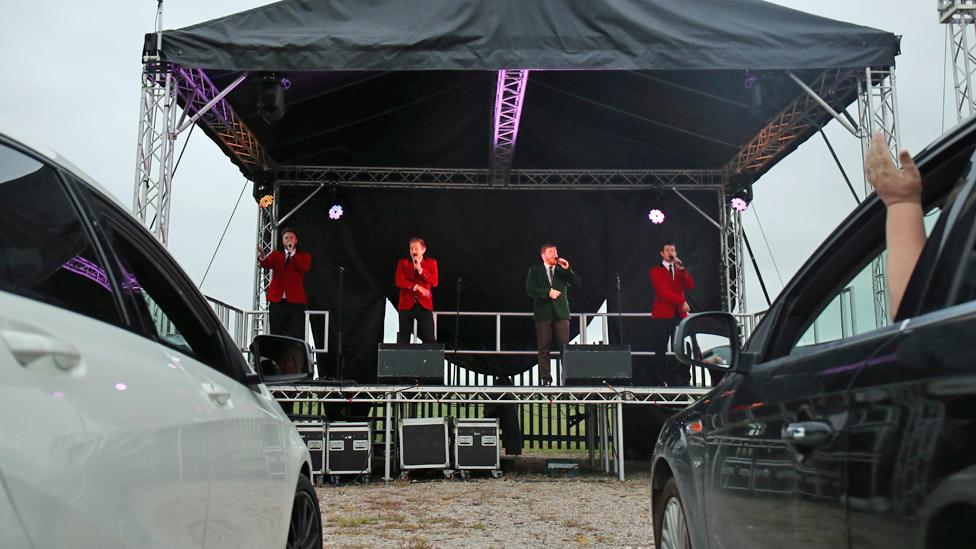
Drive-in concerts have been tried as one way to fill the gap
Before the event, organiser Max Eden said he wanted to show there was "some light at the end of the tunnel" for live concerts.
"We want to really show that this is safe, and that outdoor concerts can be done and can be done well," he said.
"A lot of people will be worried about coming back, and the longer we delay starting up events, the more it's going to feel scary coming back. I think it's important that the first experience is a good one."
On 9 July, the government announced that open-air gigs, festivals and theatre shows would be able to resume in England two days later. That was too short notice for most venues and promoters, but this weekend has seen a smattering of small outdoor shows.
Those rules, external recommended online ticketing, and for singing and wind and brass playing to be "carefully controlled". That didn't always appear to be the case.
Allow X content?
This article contains content provided by X. We ask for your permission before anything is loaded, as they may be using cookies and other technologies. You may want to read X’s cookie policy, external and privacy policy, external before accepting. To view this content choose ‘accept and continue’.

One gig promoter in Newcastle has come up with a way to try to ensure social distancing is maintained. They will put groups of fans on their own cordoned-off podiums.
Acts like Supergrass, The Libertines and Maximo Park will play at the 2,500-capacity Virgin Money Unity Arena from mid-August. The venue, a converted polo field, will have 500 platforms, each surrounded by rails. Only one person from each group will be able to go to the toilet or the bar at any one time, to avoid too many people moving around the site at once.
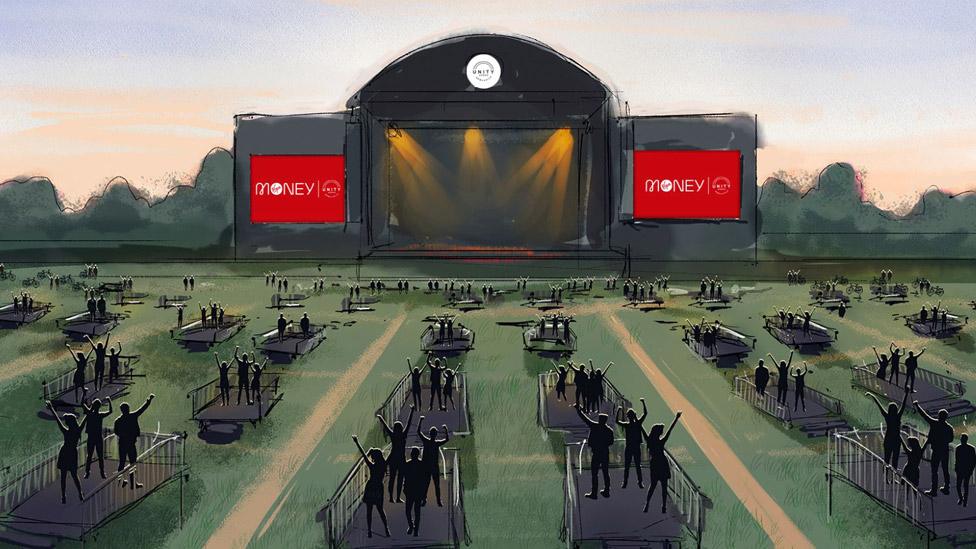
A mock-up of the fans on platforms at the Virgin Money Unity Arena in Newcastle
Steve Davis of promoters SSD says he has been "inundated" with requests from artists who want to play, and will announce another 15 shows on Tuesday. "It's mad, the take-up and the scale of the artists who want to play", he says.
"A lot of people want to raise money for their crews, a lot of people are just going stir crazy and want to get on a stage, and a lot of people just want to get back and show willing to their fans."
Davis started planning the shows the week after lockdown, after postponing 700 gigs and festivals from 2020 to 2021.
"We realised that something has to come before the [indoor] venues open again, and after the restrictions are eased," he said. "So although it's a hybrid and no-one's done it before, we think this is quite a good middle ground."
Drive-ins had been touted as another stopgap, but drive-in tours featuring stars like Kaiser Chiefs, Dizzee Rascal and Sigala were cancelled last week over fears about what might happen if the host towns and cities were put into local lockdown.
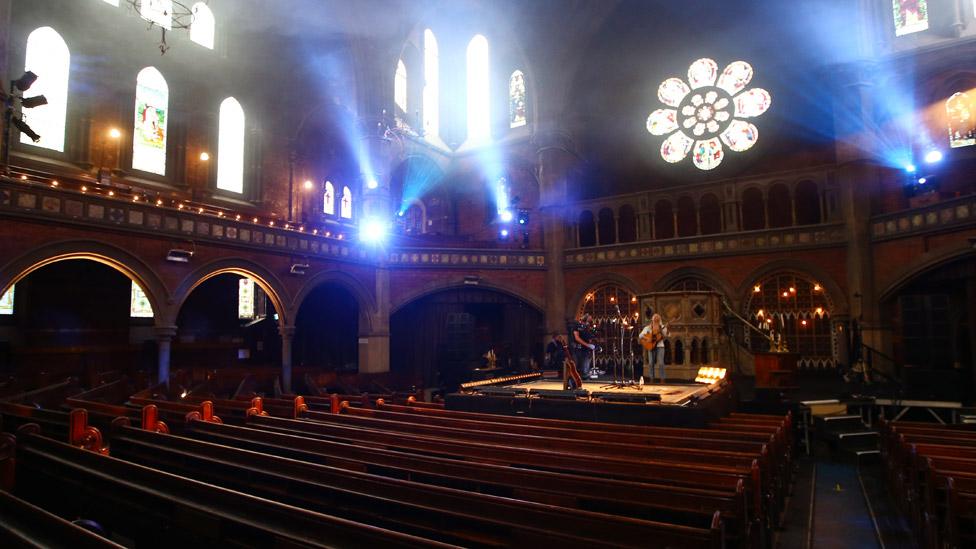
Laura Marling recently streamed a pay-per-view show from the empty Union Chapel in London
On Friday, the government gave indoor concerts and plays the green light to resume in England from 1 August - if they are socially-distanced.
Hours earlier, a test event saw 30 classical music lovers, seated on chairs safely scattered around the floor of the London Symphony Orchestra's St Luke's Church, become the first audience to watch an indoor concert since lockdown.
The performers were a violin duo who had played the same works in an empty hall a week earlier. "When you put the people there, you feel the connection," musician Julian Gil Rodriguez said. "It's a different energy. It's a real thing."
Allow X content?
This article contains content provided by X. We ask for your permission before anything is loaded, as they may be using cookies and other technologies. You may want to read X’s cookie policy, external and privacy policy, external before accepting. To view this content choose ‘accept and continue’.

Outdoor shows might have two months of summer left if they are lucky, and any excitement about their resumption is tempered by the plight of regular venues after a string of closures and redundancy announcements.
Many fans will be more reluctant to return indoors than they would to see music outside, and most venues won't be able to afford to put on gigs if social distancing means they can only sell a fraction of the tickets, even if they do have permission.
The live music industry has been working on its own solutions. Last month, Reading and Leeds festivals promoter Melvin Benn proposed a Full Capacity Plan, external, under which every gig-goer would have a coronavirus test beforehand, and wouldn't be allowed in unless they show an app confirming a negative result.
Lots of acts have done virtual concerts in recent months, and the industry is also thinking about whether pay-per-view streamed gigs could make up a shortfall from live ticket sales.
Laura Marling, Nick Cave and Lianne La Havas are among those who have streamed, or are planning to stream, professionally-filmed paid-for concerts from atmospheric empty venues.
Gigs that combine the two - with some socially-distanced fans watching in person and others watching online - is "definitely one of the options", according to Brian Message of ATC Management.
But he is banking on near-full audiences being allowed by next March, when Cave and another of his acts, Thom Yorke, are due to go on tour. "Many of us are trying to make sure that there is some level of normality at least by then," he says.
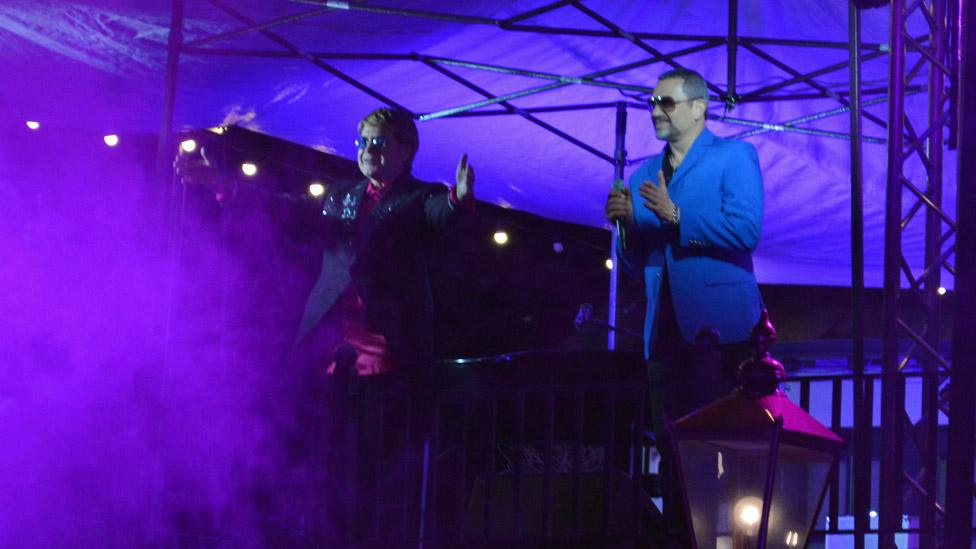
Ladies and gentlemen, neither Mr George Michael nor Mr Elton John
Back in the beer garden, there was only one possible way to close Saturday's show. George/Andrew and Elton/Paul united for a duet of Don't Let The Sun Go Down On Me, which the real stars famously performed together.
"Don't get too close," Elton joked to George on the pub terrace, which was their stage.
He could have aimed that advice at the fans below them too. Some moved forward for the final song to soak up the moment together. It still didn't quite feel crowded, but it no longer felt distanced.
This was as near as most of the audience will have come in recent months to feeling part of a shared special experience - which is what live music is all about. Sadly, shared experiences are also the highest risk.
Allow X content?
This article contains content provided by X. We ask for your permission before anything is loaded, as they may be using cookies and other technologies. You may want to read X’s cookie policy, external and privacy policy, external before accepting. To view this content choose ‘accept and continue’.

Follow us on Facebook, external, or on Twitter @BBCNewsEnts, external. If you have a story suggestion email entertainment.news@bbc.co.uk, external.
- Published18 July 2020
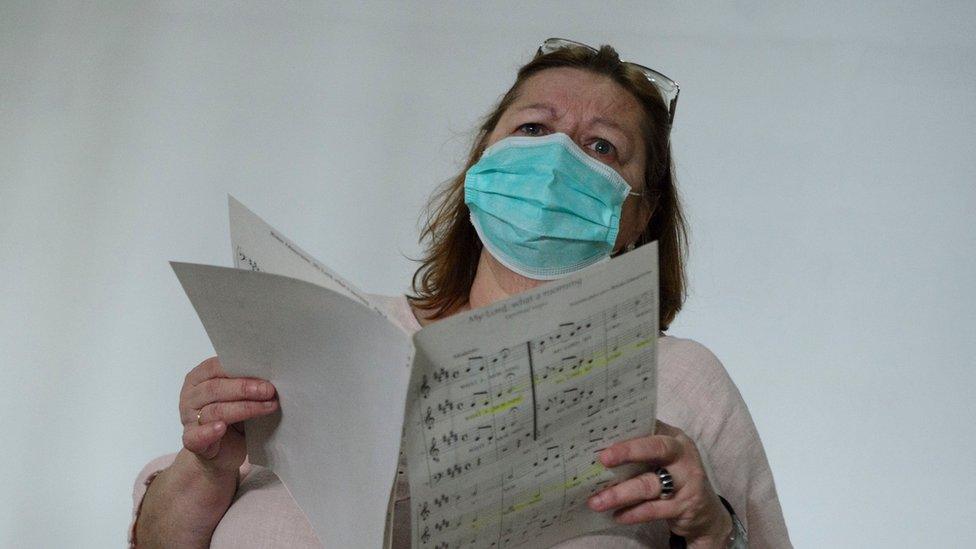
- Published17 July 2020
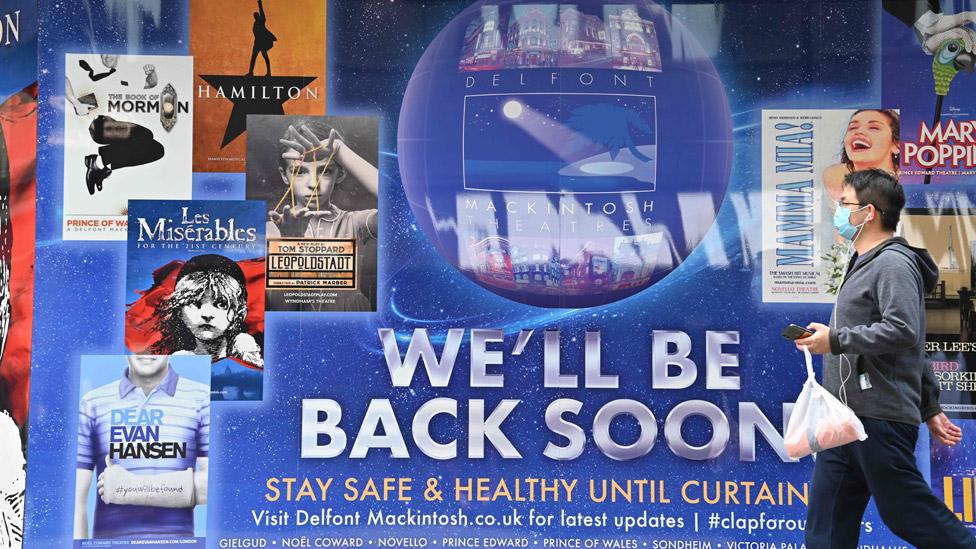
- Published9 July 2020
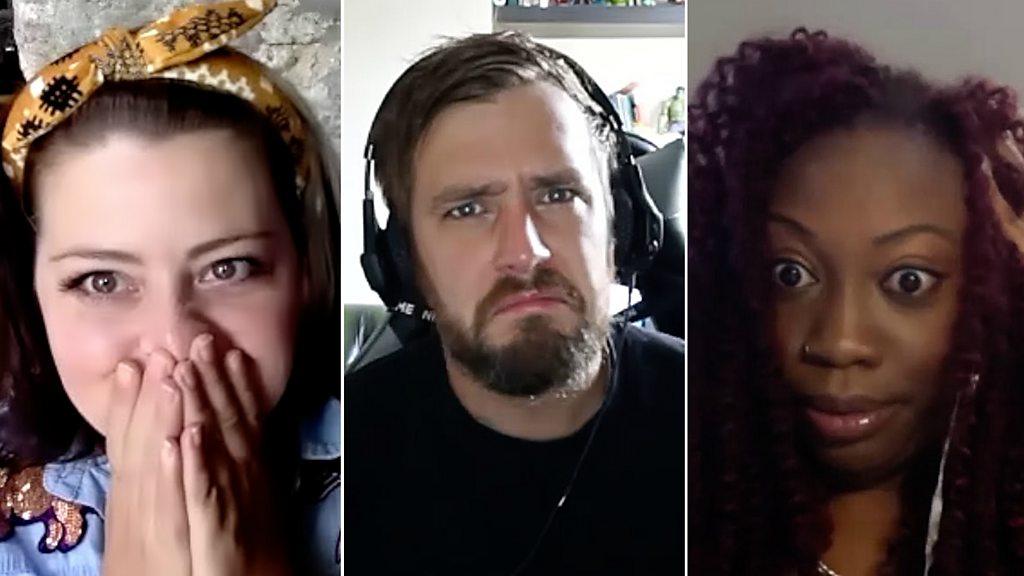
- Published16 July 2020
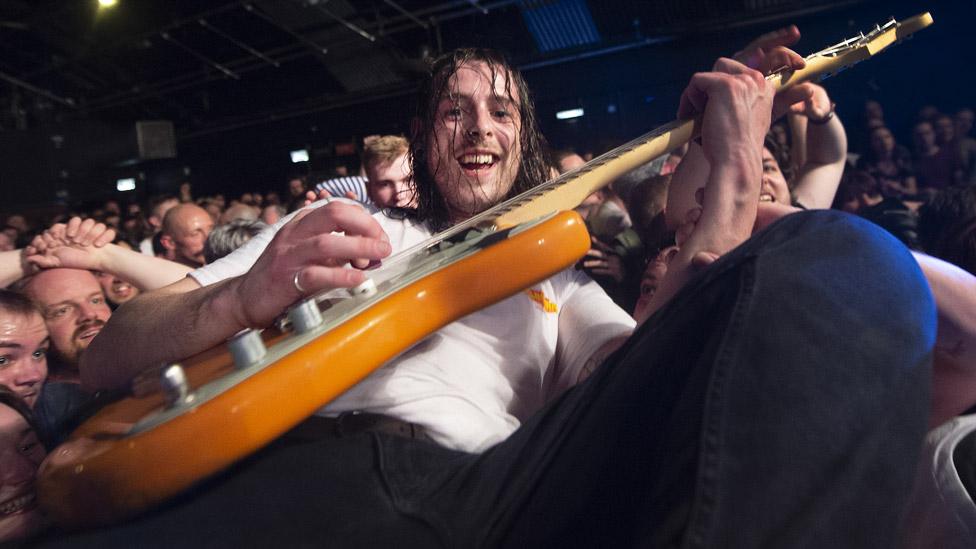
- Published16 July 2020
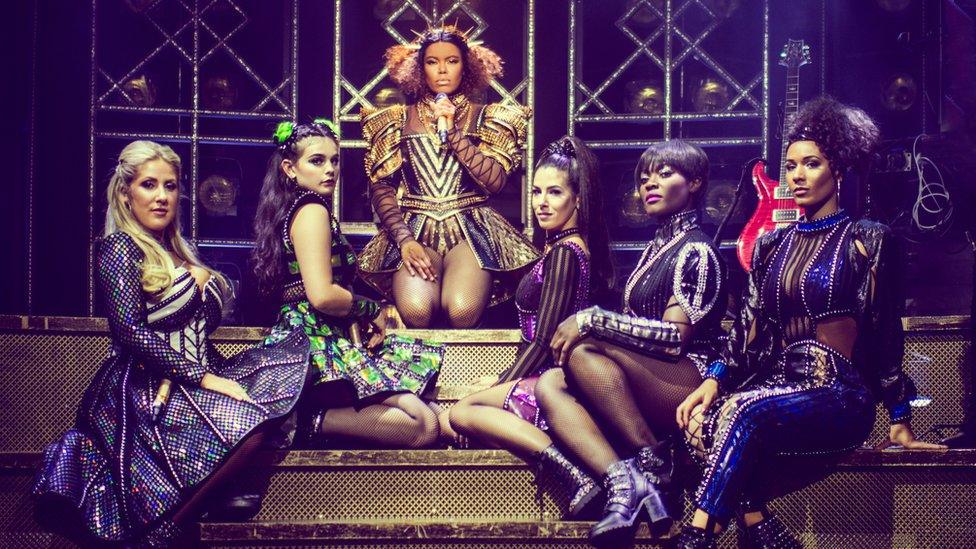
- Published9 July 2020
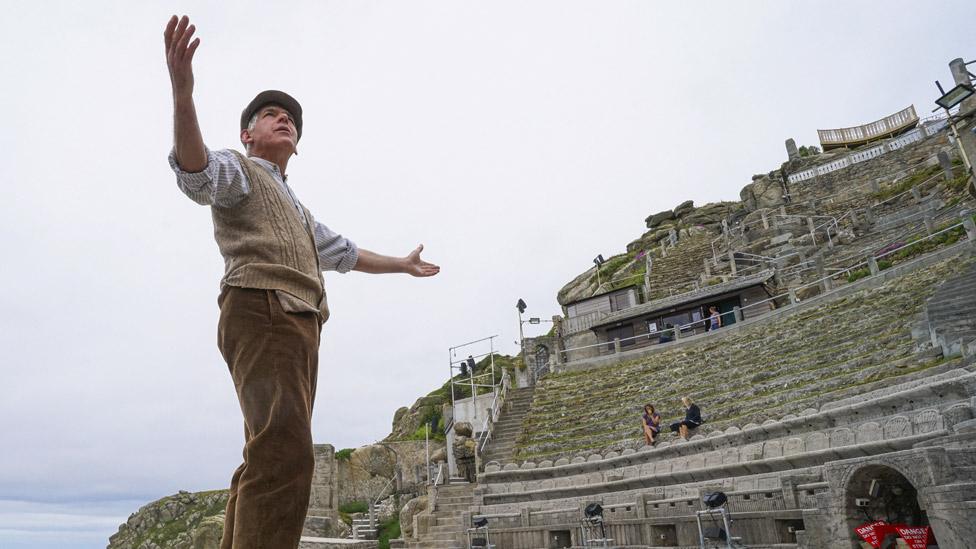
- Published3 July 2020
